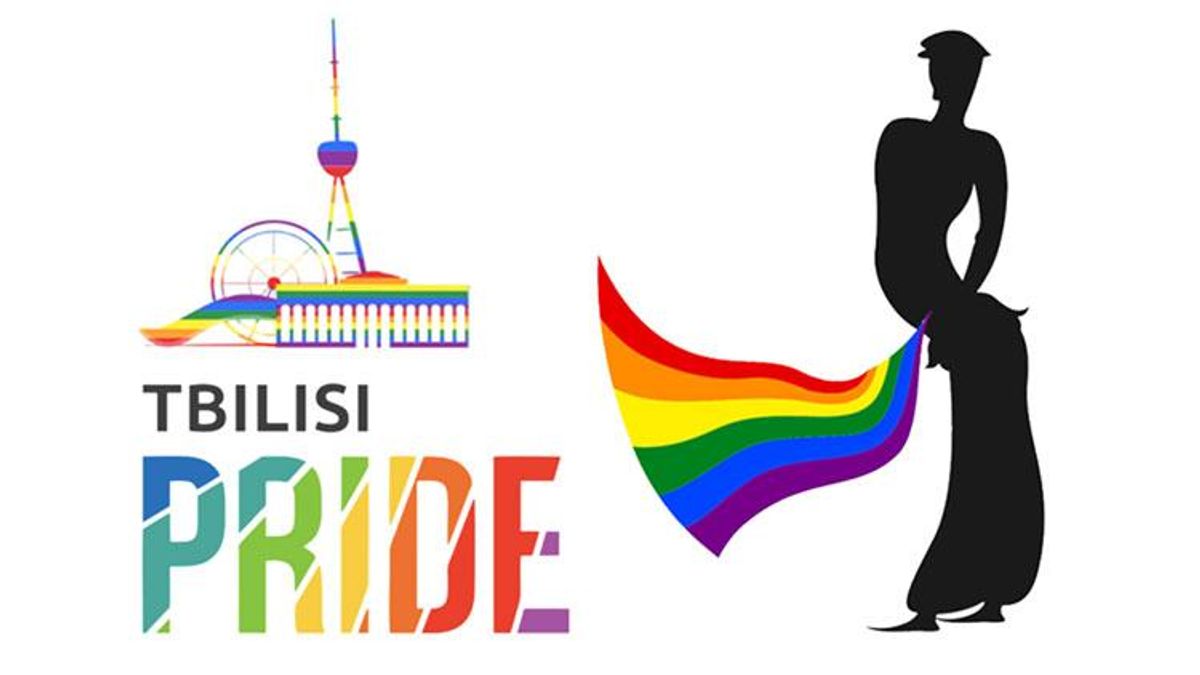World
Amid Threats and Leaks, Tbilisi, Georgia Sees First LGBTQ Pride Event

Activists gathered after threats forced an earlier cancellation.
July 08 2019 7:16 PM EST
May 31 2023 7:13 PM EST
trudestress
By continuing to use our site, you agree to our Private Policy and Terms of Use.

Activists gathered after threats forced an earlier cancellation.
LGBTQ activists in Tbilisi, Georgia, managed to hold the nation's first Pride event Monday, amid much opposition by right-wing forces and weeks after having canceled a parade due to safety concerns.
Several dozen participants marched outside the Ministry of Internal Affairs in the capital city, the Thomson Reuters Foundation reports. Organizers had planned to hold a Pride parade June 22 but canceled it because general political unrest in the nation had led to police crackdowns on protests.
"Organizers had also faced threats from extreme right-wing groups and opposition from the influential Orthodox Church, while the government had warned against the march going ahead, saying participants' safety could not be guaranteed," Thompson Reuters notes.
The march today almost didn't happen either, as the route was leaked online, leading to threats of violence at the event. Organizers decided to cancel once again, but activists ultimately gathered near the Internal Affairs building. Co-leader Giorgi Tabagari and his group, Tbilisi Pride, tweeted about the result.
\u201cTbilisi Pride has finally happened. Smaller in numbers but we managed to get out safely. History in making! https://t.co/nhaylXbMaE \n\n#TbilisiPride #Georgia #Pride #TbilisiPride2019\u201d— Giorgi Tabagari (@Giorgi Tabagari) 1562603618
\u201cFirst ever Tbilisi Pride has finally happened! Despite the fact that radical groups and government tried their best to sabotage our events, we managed to hold our March of Dignity today!\n\nPublic space belongs to us as well and we are not willing to give it up! \u270a\n\n#TbilisiPride\u201d— Tbilisi Pride (@Tbilisi Pride) 1562605563
Anti-LGBTQ protesters rallied nearby, and their presence likely discouraged turnout for the Pride event, Tabagari told Thompson Reuters. "There would probably be many more people going in the normal circumstances if we didn't have the counterdemonstrations happening," he said. "It changed a lot in terms of [the] amount of people who went out, but it didn't change the messages we had to say and it didn't change the spirit and it didn't change the visibility."
The Georgian Orthodox Church had opposed the event, saying it promoted "the sin of Sodom," and that being LGBTQ went "against the Christian faith, traditional religious teachings, and moral values." It is one of the leading forces against modernization of the nation's culture.
Tabagari said his car was chased for several blocks as he left the event, but he felt that the marchers had advanced their cause by being visible. "Visibility is important," he told Thomson Reuters. "What this Pride has done in the past four months has been very significant, and it will change the whole discourse about LGBT+ rights in this country."
Fans thirsting over Chris Colfer's sexy new muscles for Coachella